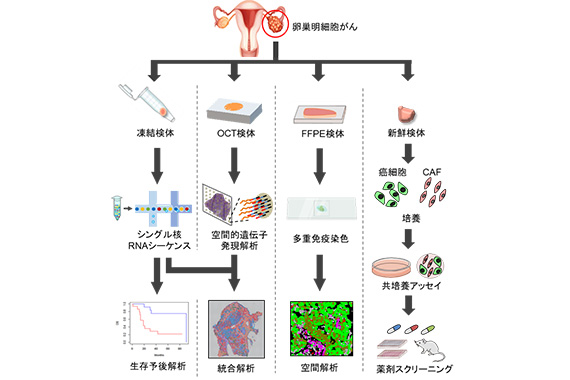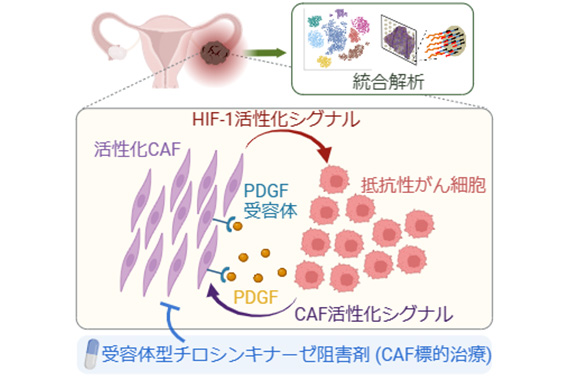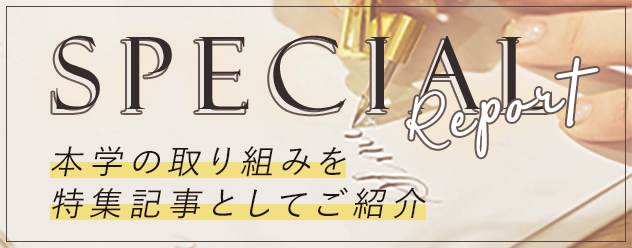Topics
- Education and Research
April 26, 2024
- Press Releases
A collaborative research group led by Professor Okamoto has discovered a cooperative interaction between cells that causes treatment resistance in refractory ovarian cancer.
A collaborative research group led by Professor Yasuji Okamoto of Teikyo University's Advanced Comprehensive Research Organization, discovered in the JST Strategic Basic Research Promotion Program CREST that cancer-associated fibroblasts (CAFs), which are different from cancer cells, are involved in the treatment resistance of refractory ovarian cancer.
Ovarian cancer is also known as a silent killer, and is difficult to detect early. There are several types of ovarian cancer, but clear cell carcinoma is one in which anticancer drugs are often ineffective, and there is a strong demand for the development of an effective treatment.
This research group analyzed surgical specimens of clear cell carcinoma by combining cutting-edge analytical methods such as single cell analysis and spatial expression analysis. As a result, they discovered that the cooperative action of HIF-1-positive cancer cells and CAFs causes resistance to anticancer drugs, and that a growth factor (PDGF) released by cancer cells promotes resistance to anticancer drugs through the activation of CAFs. Furthermore, they revealed that a receptor tyrosine kinase inhibitor suppresses CAF activation, thereby enhancing the inhibitory effect of conventional anticancer drugs.
It is expected that this research will lead to the development of new treatments that target CAFs, as well as new anticancer drugs for refractory ovarian cancer.
The results of this research were published in the online version of the American scientific journal Cell Reports Medicine on Friday, April 26, 2024.
Click here for the press release


